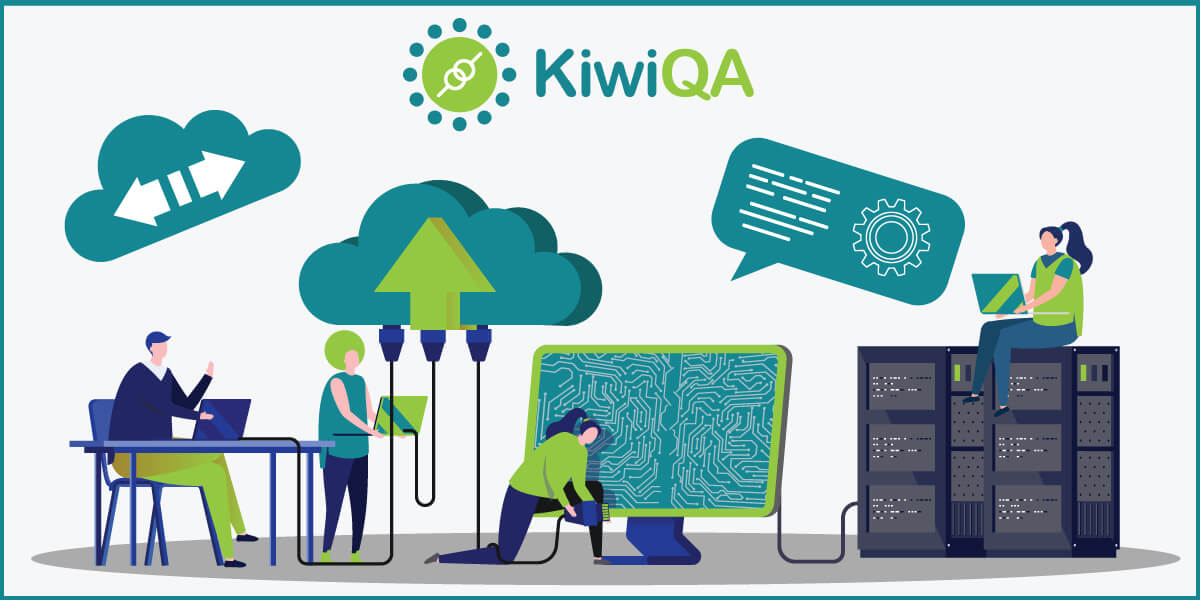Benefits Of Cloud Based Regression Testing

 KiwiQA
KiwiQARegression testing is one of the prime activities in the testing lifecycle that ensures that the functional and non-functional aspects of the product work as expected after software changes. Like other forms of software testing, regression testing comes in different types. Unit regression testing, selective regression testing, progressive regression testing, partial regression testing, and complete regression testing are some of the major types of regression testing.
However, performing regression testing at scale comes with its own set of challenges. The good part is that there are ways to manage challenges with regression testing. When we talk about scalability and reliability, there has to be a mention of cloud technology. Running regression tests on the cloud has a huge number of benefits, majorly in the form of accessibility, reliability, virtualization, scalability, continuous testing, and integration.
Web products that address a significantly large user-base can become extremely complex with size and scale. The complexity increases when the software application has to be tested on different networks, browsers, devices, and operating systems.
Running regression tests at such a scale using local infrastructure can be technically challenging and highly unreliable. This is where cloud-based regression testing fits very well in the entire scheme of things.
In a regular regression testing cycle, changes made to the software stack are tested for any breakage in the existing features (or functionalities) of the product. This can become a daunting task when enterprises are using the Agile-DevOps approach for software development and testing.
Continuous Testing also holds significant relevance when it comes to regression testing. Regression testing on an omnichannel operating environment comprising of different devices, operating systems, browsers, etc. can pose scalability and reliability challenges.
Apart from the testing infrastructure, choosing the right regression testing tool also becomes extremely important.
Also Read – Top 10 Regression Testing Tools
Cloud-based regression testing provides the benefits of scalability, security, performance, and supreme user experience; something that is unthinkable with local regression testing. Regression testing on the cloud lets QA engineers run tests on a slew of operating systems, devices, and browsers; without being worried about the maintenance of the testing infrastructure.
E2E (end-to-end) regression testing on the cloud helps in delivering superior user experience across devices, along with accelerating the delivery timeline. A company that provides regression testing services can help in choosing the best-suited tools and infrastructure to give wings to regression testing on the cloud.
Now that we have covered the reasons for cloud-based regression testing, let’s look at the major benefits of running regression tests on the cloud.
Scalability, security, and reliability are some of the given benefits when you choose the cloud for any performing any form of testing (including regression testing). Here is the rundown of the major benefits offered by regression testing on the cloud:
In an Agile development environment, software development and testing go hand in hand. Developers are increasingly becoming a part of the testing lifecycle as a growing number of enterprises are adopting shift-left testing.
Continuous testing is one of the guiding pillars for software projects that are using the Agile-DevOps strategy. The backbone of continuous testing is a scalable and reliable testing infrastructure that is accessible 24/7 by the QA team.
This is where a cloud-based central repository can be extremely beneficial, as testers (irrespective of their physical location and time zone) can collaborate with other team members for running regression tests on the product. Cloud-based regression testing platform also helps in realizing automated regression testing. This in turn helps in performing regression testing in a more accurate and scalable manner.
As a matter of fact, automated regression testing when made a part of the CI/CD pipeline helps in ensuring that regression tests are run after fixes (or code) are added to the project. This round-the-clock regression testing is instrumental in making sure that only top-notch quality software enters into the release pipeline.
Also Read – Tips For Continuous Testing Implementation
Like any other form of testing, regression testing also requires a stable testing infrastructure on which regression tests can be performed. What if your project has a distributed regression testing team that needs continuous access to the testing infrastructure?
Investing in building a local infrastructure at different geographical locations is a technically non-feasible and highly unreliable solution. You would require a separate team to continuously upgrade and maintain the infrastructure.
This additional overhead can be avoided by shifting to a cloud-based regression testing approach. Teams can access the test environment, irrespective of their location or time zone. Regression testing on the cloud also promotes team collaboration, as other team members can have a detailed look at the testing activities performed by other members in the team.
Communication and collaboration are the major by-products of cloud-based regression testing. KiwiQA, a regression testing company can be a huge value-addition in scenarios where enterprises are unable to leverage the benefits of cloud regression testing.
Virtualization is one of the major benefits of cloud technology. Since the platforms are virtualized, it results in reduced costing with improved scalability and reliability.
Cloud-based virtualization helps in providing an omnichannel testing environment comprising of different browsers, browser versions, devices, and operating systems. All of this can be achieved without any compromise on speed and quality.
Also Read – 5 Best Practices to Perform Regression Testing
Virtual users can be simulated at lower costs with a reliable cloud-based regression testing infrastructure. A reliable and scalable cloud-based server can simulate numerous users in a span of few seconds (or even milliseconds).
Regression testing resources are available on-demand basis; thereby helping the enterprise reaps the benefits of cloud technology. You only pay for the resources that are being used by your team since the regression resources are commissioned automatically.
Real-time generation of the regression testing reports makes it easy to locate and fix issues in the web product. Cloud-based testing tools use the DevOps model of testing that ensures the application is tested for any security-related vulnerabilities once there is an upgrade in features (or functionalities).
Lastly, cloud-based regression testing infrastructure is always available thereby making it possible to run regression tests at an expedited pace.
We stressed upon the importance of continuous testing in today’s highly complex web-based software products. Fixes that go into the delivery pipeline must be thoroughly tested for any side effects. This is only possible when regression testing is a part of the delivery pipeline.
Cloud-based regression testing enables the integration of new builds into the given application at a quicker pace. This is possible by running regression tests in parallel on a range of devices, browsers, and operating systems.
The result of continuous testing and continuous integration is an improved test, browser, and device coverage – a task that is difficult to achieve with local regression testing infrastructure.
It is recommended to consult regression testing services company like KiwiQA in case there are doubts regarding running regression tests at scale.
Also Read – Key Differences between Regression Testing & Retesting
Cloud-based regression testing is the need for software projects where QA members are seated across different geographical locations. A scalable and reliable cloud-based regression testing suite helps in ensuring that regression tests are performed in parallel on every aspect of the software product.
KiwiQA’s approach to cloud-based regression testing helps enterprises run regression tests with minimum (to no) disruptions. KiwiQA is a proven regression testing company that has served global enterprises in realizing regression testing at scale.
Subscribe to our newsletter for some hand-picked insights and trends! Join our community and be the first to know about what's exciting in software testing.
Welcome to the testing tales that explore the depths of software quality assurance. Find valuable insights, industry trends, and best practices for professionals and enthusiasts.

Fill out and submit the form below, we will get back to you with a plan.
 CRN:
22318-Q15-001
CRN:
22318-Q15-001 CRN:22318-ISN-001
CRN:22318-ISN-001 CRN:22318-IST-001
CRN:22318-IST-001